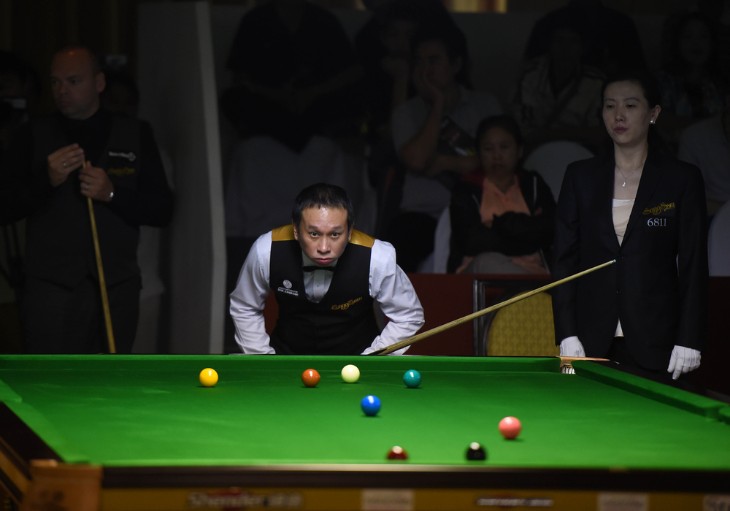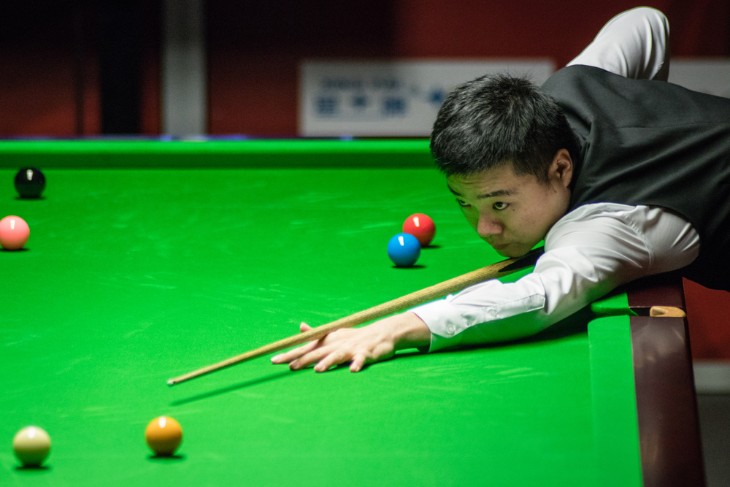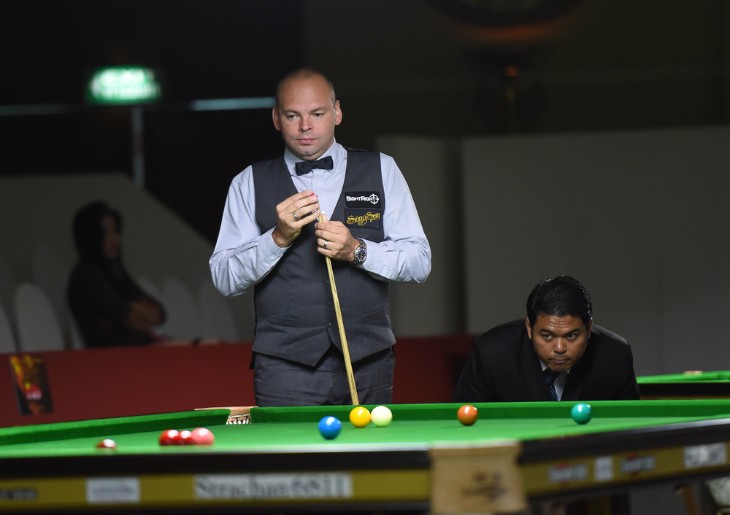The intricacies of snooker lie in its tactical nature. Players must exhibit a blend of precision, concentration, and strategic foresight. The game's complexity is not just in potting the balls but also in snooker tactics, like positioning the cue ball to disadvantage the opponent. This strategic depth makes snooker not only a challenging game to master but also an engaging sport to bet on, particularly in the context of predicting the winner of the next frame.
Initially, betting was informal, largely taking place among spectators and players in snooker halls. As the sport gained televised coverage, the betting landscape expanded significantly. This exposure brought snooker to a wider audience, sparking increased interest in betting on matches.
With the advent of online betting platforms, the dynamics of snooker betting underwent a significant transformation. These platforms offered a wider array of betting options, including the popular 'next frame winner' bets. This type of bet allows spectators to place wagers on who they predict will win the subsequent frame, adding an element of immediacy and excitement to the viewing experience. As the sport continues to evolve, so too does the nature of betting, adapting to technological advancements and changing audience preferences. The future of snooker betting promises even more sophistication, with real-time data analytics playing a pivotal role.
The Psychology of Betting in Snooker
The psychology behind snooker betting is a crucial aspect that often goes unnoticed. Bettors are not just influenced by the players' performances but also by their own psychological biases and tendencies. For instance, the 'favourite-longshot bias' is common, where bettors disproportionately favour either the underdog or the favoured player, affecting the odds and potential payouts. This bias can significantly influence betting decisions, particularly in Next Frame Winner bets where the outcome of a single frame can seem more unpredictable.
Furthermore, the excitement and tension during a snooker match can lead to impulsive betting decisions. Bettors often get caught up in the heat of the moment, especially in live betting scenarios. This impulsivity is heightened in frame-by-frame betting, where each shot can drastically change the perceived likelihood of a player winning the next frame. Understanding these psychological elements is essential for bettors to make more informed decisions and avoid common pitfalls.
Analytical Tools and Technologies in Snooker Betting
In the realm of snooker betting, the use of analytical tools and technologies has become increasingly important. Data analytics play a vital role in predicting outcomes, especially in Next Frame Winner bets. These tools analyse various factors such as players' historical performance, playing style, and recent form. By leveraging this data, bettors can gain insights that go beyond mere intuition or favouritism.
Key technologies and tools in snooker betting include:
- Statistical Analysis Software: These programs provide detailed data on players, including win-loss ratios, frame averages, and break-building ability.
- Machine Learning Algorithms: Used to predict outcomes by analysing patterns in large datasets, these algorithms can offer a more objective perspective on likely winners.
- Real-Time Performance Tracking: This technology tracks players' current form and fatigue levels during a match, providing live insights that are crucial for in-play betting.
The integration of these tools has transformed snooker betting from a game of chance to one of skill and analysis. Bettors who utilise these technologies can make more informed decisions, thereby increasing their chances of success in the competitive world of sports betting.

Key Strategies for Next Frame Winner Betting
Developing effective strategies for Next Frame Winner betting in snooker is essential for success. One fundamental strategy is the thorough analysis of players' historical performance. This involves examining past matches to understand a player's strengths and weaknesses in different scenarios. For instance, some players may excel in high-pressure situations, making them more likely to win crucial frames. Additionally, understanding head-to-head statistics between players can provide insights into psychological edges or matchup advantages.
Another key strategy is monitoring the live conditions during a match. Factors such as table conditions, player form on the day, and even crowd influence can significantly sway the outcome of a frame. Experienced bettors often keep a keen eye on these aspects, as they can offer vital clues about the likely Next Frame Winner. Adapting bets based on these real-time observations can be more effective than relying solely on pre-match analysis.
Risk Management
Risk management is an integral part of successful betting, particularly in the unpredictable realm of Next Frame Winner bets in snooker. The first step in managing risk is setting a budget and sticking to it. This helps bettors avoid the common pitfall of chasing losses, which can lead to significant financial problems. A disciplined approach to betting, with clear limits on both wins and losses, is crucial for long-term sustainability.
Diversification of bets is another important aspect of risk management. This involves spreading bets across different types of wagers, players, and tournaments. For instance, in addition to Next Frame Winner bets, a bettor might also engage in outright winner bets or bets on the highest break. This strategy reduces the risk of heavy losses in a single bet and increases the chances of overall profitability. Understanding and implementing these risk management techniques can significantly enhance a bettor's chances of success in the dynamic world of snooker betting.
Player Performance and Statistical Analysis
Analysing player performance and statistics is crucial in making informed decisions for Next Frame Winner bets. Bettors often examine various aspects of a player's game, such as consistency, break-building ability, and performance under pressure. These statistics provide a quantitative basis for assessing a player's likelihood of winning a particular frame.
Key statistical indicators include:
- Average Frame Score: This reflects a player's scoring ability per frame.
- Safety Play Success Rate: Important in snooker, this measures a player's defensive skills.
- Head-to-Head Records: Indicates how a player fares against specific opponents.
- Recent Form: Tracks a player's performance in recent tournaments.
By evaluating these statistics, bettors can gauge a player's current form and potential to win the next frame. However, it's essential to balance these statistics with other factors such as player psychology and match conditions for a more holistic approach.
External factors play a significant role in influencing the outcomes of snooker matches, impacting Next Frame Winner betting. One such factor is the playing environment, including table conditions and the atmosphere in the snooker hall. For instance, certain players may perform better in specific venues due to familiarity or crowd support. Additionally, the type of cloth and table temperature can affect the speed and roll of the balls, influencing players' performance.
Another critical external factor is the mental and physical state of the players. Factors like fatigue, stress, or personal issues can drastically alter a player's game. For example, a player who is usually calm and composed may struggle to maintain focus if dealing with external stressors, affecting their chances as the Next Frame Winner.
These external factors highlight the need for bettors to look beyond mere statistics and consider the broader context of each match. By understanding and accounting for these variables, bettors can make more accurate predictions and enhance their betting strategies.

Emerging Trends in Snooker Betting
The landscape of snooker betting is constantly evolving, with new trends emerging that influence the Next Frame Winner market. One significant trend is the increasing use of mobile betting apps. These apps offer convenience and real-time betting opportunities, allowing bettors to place wagers instantly based on the live action. This immediacy is particularly appealing in frame-by-frame betting, where quick decisions are essential.
Another emerging trend is the integration of more sophisticated data analytics and AI algorithms. These technologies offer deeper insights and more accurate predictions by analysing vast amounts of data, including player performance, psychological factors, and historical trends. As these technologies advance, they are expected to play a more prominent role in shaping betting strategies and influencing the odds in the Next Frame Winner market. This trend towards technology-driven betting is not only making the process more efficient but also more engaging for bettors.
Ethical considerations in snooker betting, particularly in Next Frame Winner bets, are paramount. The integrity of the sport must be upheld to ensure fair play and maintain trust among spectators and bettors. One critical ethical issue is the potential for match-fixing, where players might deliberately underperform for betting gains. This not only tarnishes the sport's reputation but also skews the betting market, leading to unfair advantages and losses.
To address these concerns, several measures are essential:
- Strict Enforcement of Anti-Corruption Laws: Ensuring players and officials adhere to high ethical standards.
- Education and Awareness Campaigns: Informing players and bettors about the consequences of unethical practices.
- Collaboration with Betting Companies: Monitoring betting patterns to detect and investigate suspicious activities.
These steps help create a transparent and fair betting environment, crucial for the sport's integrity and the validity of Next Frame Winner bets.
Conclusion
In conclusion, the future of Next Frame Winner betting in snooker appears to be shaped by technological advancements and a growing emphasis on ethical practices. As data analytics and AI continue to evolve, they will likely play an even more significant role in informing betting decisions. This progression promises more sophisticated and informed betting strategies, enhancing the experience for bettors.




.webp)


 (1).webp)




















